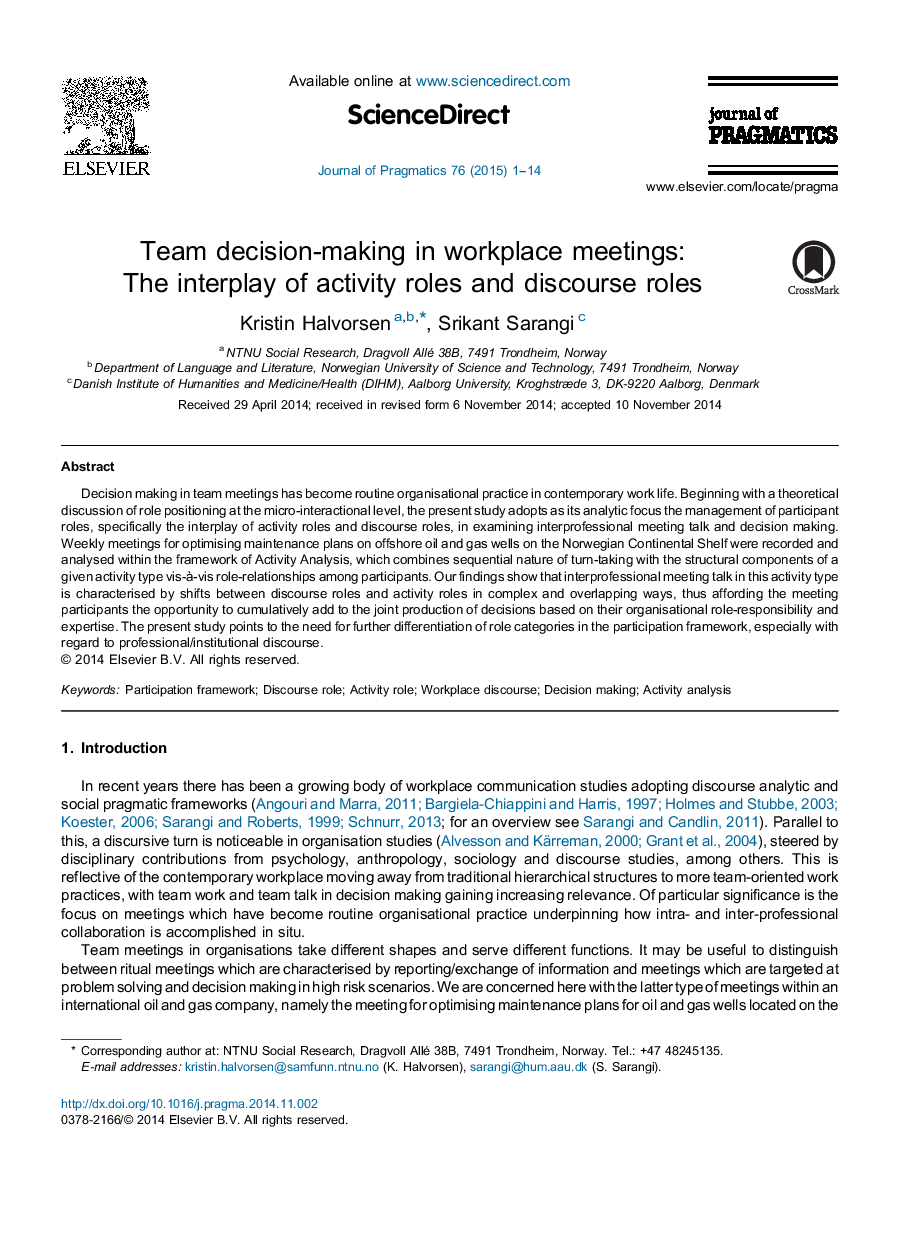| Article ID | Journal | Published Year | Pages | File Type |
|---|---|---|---|---|
| 932643 | Journal of Pragmatics | 2015 | 14 Pages |
•We study the interplay of activity roles and discourse roles in team decision making.•The analytic framework proposes to extend Goffman's concept of participation framework.•The dynamic role categories are mapped onto interactional data in a workplace meeting setting.•Analysis finds dynamic and shifting role-positioning across institutional roles and expertise.•This interplay affords a convergence of expert labour efficient for decision making in this setting.
Decision making in team meetings has become routine organisational practice in contemporary work life. Beginning with a theoretical discussion of role positioning at the micro-interactional level, the present study adopts as its analytic focus the management of participant roles, specifically the interplay of activity roles and discourse roles, in examining interprofessional meeting talk and decision making. Weekly meetings for optimising maintenance plans on offshore oil and gas wells on the Norwegian Continental Shelf were recorded and analysed within the framework of Activity Analysis, which combines sequential nature of turn-taking with the structural components of a given activity type vis-à-vis role-relationships among participants. Our findings show that interprofessional meeting talk in this activity type is characterised by shifts between discourse roles and activity roles in complex and overlapping ways, thus affording the meeting participants the opportunity to cumulatively add to the joint production of decisions based on their organisational role-responsibility and expertise. The present study points to the need for further differentiation of role categories in the participation framework, especially with regard to professional/institutional discourse.
